100 Minutes with ILS
Connection details (please log in to access)
Please log in to access recordings
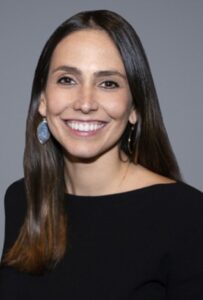
Imaging lipidomics
July 30th, 2021
Livia S. Eberlin, University of Texas at Austin, Texas, U.S.A.
Title: Direct Lipid Analysis to Guide Cancer Diagnosis and Surgical Decisions
Prof. Livia Schiavinato Eberlin is an Assistant Professor in the Departments of Chemistry at the University of Texas at Austin and Department of Surgery at Baylor College of Medicine. Dr. Eberlin received her B.S. in Chemistry from the State University of Campinas, her Ph.D. in Analytical Chemistry from Purdue University, and pursued her postdoctoral research in the Department of Chemistry at Stanford University. In 2016, Prof. Eberlin started her independent career at The University of Texas at Austin. Eberlin and her team are the recipients of many honors for their scientific research, including a NIH K99/R00 Pathway to Independence Award, a Moore Inventor Fellowship, and a MacArthur Fellowship. Her research program centers around the development and application of novel mass spectrometry technologies in health-related research, with a particular focus on disease detection and diagnosis.
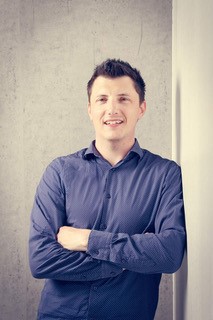
Shane Ellis, University of Wollongong, Australia
Title: Peering deeper into the lipidome with mass spectrometry imaging
Shane Ellis completed his Undergraduate studies (B.Nanotechnology) and PhD in the field of ambient ionisation mass spectrometry and lipidomics the University of Wollongong, Australia. In 2012 he began a post-doctoral positional at the FOM-Institute AMOLF where he worked on the development of innovative active-pixel detectors for charged particle detection with applications in imaging mass spectrometry and ion mobility spectrometry. From 2014-2019 he was an Assistant Professor within the M4I Institute (Maastricht University, The Netherlands) where he led the Instrumentation and Application Development Group. His research develops and applies state-of-the-art mass spectrometry imaging methods to reveal localised biochemical processes within complex tissues and how they altered with disease. His group has developed a variety of innovative methods that significantly enhance the sensitivity and spatial resolution of MSI experiments and enabled precise and comprehensive structural identification of the many molecules detected by MSI and has been by numerous Dutch and European grants. In 2020 he returned to Australia as an ARC Future Fellow and started a new mass spectrometry imaging group within the new Molecular Horizons Institute, where he continues to further develop mass spectrometry imaging technologies and apply them to challenging biological and chemical problems.
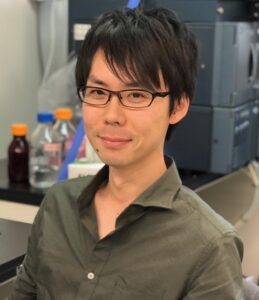
Kuniyuki Kano, University of Tokiyo, Japan
Title: Novel MS Imaging Methods for Phospholipid Analysis
Dr. Kuniyuki Kano is currently an assistant professor at the University of Tokyo in Japan. He received Ph.D. degree in the field of pharmaceutical sciences in 2012 from Tohoku University in Japan. He originally has a background in biochemistry and molecular biology and engaged in the research of pathophysiological functions of bioactive signaling lipids, including lysophospholipids (LPA, LysoPS, and S1P). He has also recently become interested in mass spectrometry techniques (LC-MS and imaging MS) and is trying to develop methodologies to detect these less abundant bioactive lipids.
Neurolipidomics
May 28th, 2021
Steffany Bennett, University of Ottawa, Ontario, Canada
Dr. Steffany Bennett is a lipid biochemist and systems neurobiologist working to identify gender and sex-specific differences in lipid metabolism associated with neurodegenerative disease. She is a Full Professor and University Research Chair in Neurolipidomics at the University of Ottawa. She is also the Director of the India Taylor Lipidomics Research Platform, Associate Director of the Centre for Catalysis Research and Innovation, Co-Director of the NSERC CREATE Matrix Metabolomics Training Program, and Special Advisor to the President on Equity, Diversity, and Inclusion. Her area of expertise is in the use of high-performance liquid chromatography electrospray ionization tandem mass spectrometry as applied to neurolipidomics and to evidence-based personalized precision medicine focusing on how lipid metabolism dictates vulnerability and resilience to genetic determinants of neurodegenerative disease. To achieve this goal, her research incorporates not only a GBA+ approach but also seeks to embed principles of equity diversity and inclusion into all aspects of metabolic research.
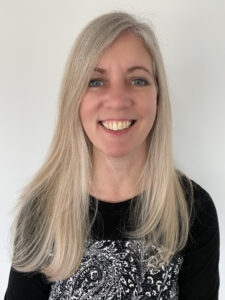
Yuqin Wang, Swansea University, Wales, U.K.
Title: Cholesterol metabolism in brain and neurodegenerative disease
Professor Yuqin Wang obtained her BSc in Pharmacy from Peking University in China. She started her research career at Karolinska Institute in Stockholm, where she obtained a PhD in Medical Biochemistry. She was classically trained as a protein/lipid biochemist, becoming well versed in protein/lipid purification and analysis techniques, in particular mass spectrometry. Following postdoctoral training in industry and at University College London, she took a lectureship at Swansea University, UK in 2007 and was promoted to Associate Professor in 2013 and Professor in 2018. Professor Wang is an active member of the international lipidomics community and was one of the lead organisers for a number of meetings, including the 5th European Lipidomic Meeting, the 3rd Symposium of the European Network for Oxysterol Research, and the EMBO practical course in “Lipid mass spectrometry and lipidomics”. From 2016, Professor Wang has served as a committee member for the Biotechnology and Biological Sciences Research Council and is a member of Editorial Board for Clinical Mass Spectrometry.
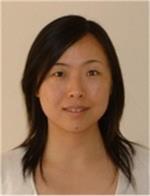
Kelly Wormwood Moser PhD – Applications Manager MOBILion Systems Inc.
Title: Untangling and Quantifying Isomeric Molecular Gangliosides using High-Resolution Ion Mobility-Mass Spectrometry Analysis
Kelly Wormwood Moser is leading MOBILion’s application development, working with industry collaborators to develop methods to demonstrate HRIM separation capabilities with biological samples. Kelly is leveraging her Ph.D. research experience, where under the direction of Dr. Costel Darie, she used mass spectrometry to identify potential protein biomarker signatures for Autism Spectrum Disorders.

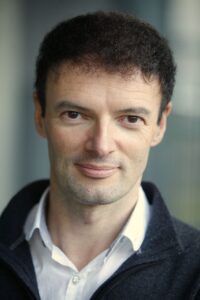
Cancer lipidomics
June 25th, 2021
Johannes V Swinnen, KU Leuven, Belgium
Keynote title: Lipidomics and Lipid Metabolism in Cancer
Dr. Johannes Swinnen is a biochemist and cancer researcher exploring the rewiring of lipid metabolism in cancer. He is a Full Professor at the University of Leuven in Belgium. He is also the Director of the KU Leuven Lipidomics Core Facility Lipometrix. His research centers around the use of various lipidomics approaches to map the heterogeneity of alterations in lipid metabolism in cancer development and progression. His main focus is on the discovery of lipid-related vulnerabilities and their exploitation to overcome therapy resistance in the context of personalized precision medicine.
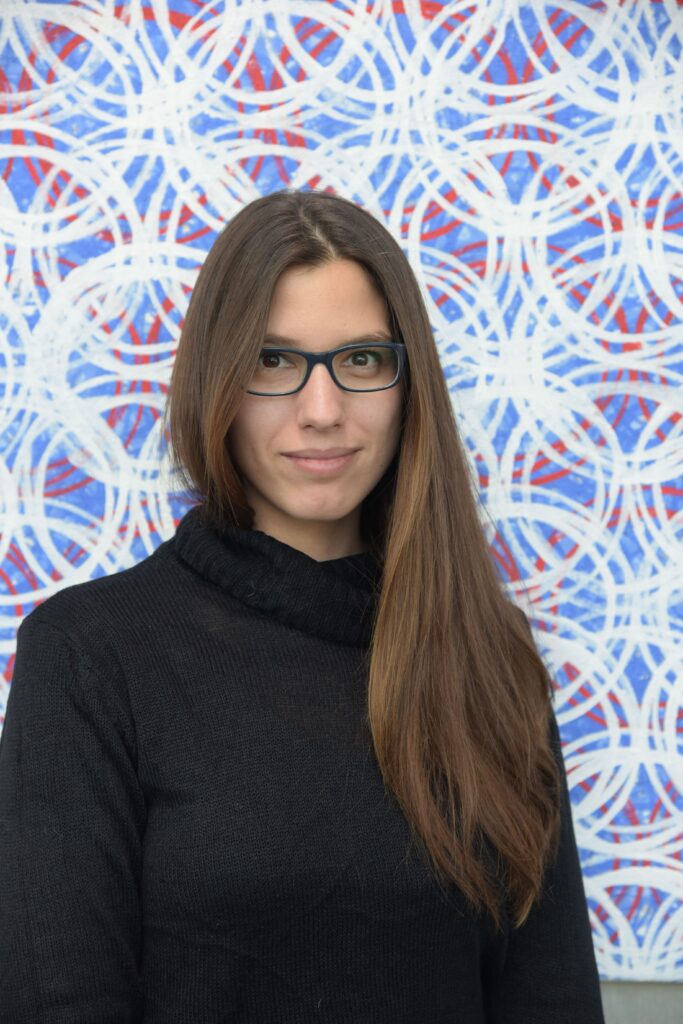
Denise Wolrab, University Pardubice, Czech Republic
Title: The long journey from the lipidomic analysis of biological samples towards cancer screening
Dr. Denise Wolrab is an analytical chemist, with special focus on separation science and the application for the analysis of biomolecules, particularly using supercritical fluid chromatography hyphenated to mass spectrometry. After her PhD at the University of Vienna in 2017, she obtained a postdoc position at the University of Pardubice responsible for method development and application of lipidomics for cancer screening mainly using UHPSFC/MS. Since 2020, Denise Wolrab is PI and Grant Project manager at the University of Pardubice, evaluating the applicability of UHPSFC/MS for the metabolomic analysis of clinical samples.
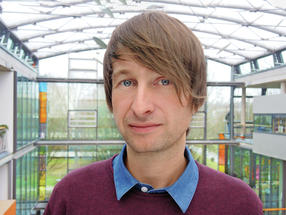
Josef Ecker, TUM, Germany
Title: The colorectal cancer lipidome – how to derive robust and reproducible signatures
Josef Ecker, born in 1978, studied biology at the University of Regensburg. He earned his doctorate in 2007, after which he researched as a postdoc at the University Hospital in Regensburg at the Institute of Clinical Chemistry. After several subsequent years in industry, working in executive and laboratory management, he went back into academic research. Since 2016 he has been an independent group leader at the Technical University of Munich (TUM).


